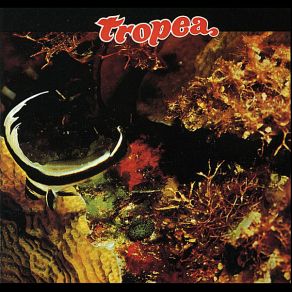Tropea
Download links and information about Tropea by John Tropea. This album was released in 1975 and it belongs to Jazz, Pop genres. It contains 8 tracks with total duration of 42:12 minutes.

|
|
|---|---|
| Artist: | John Tropea |
| Release date: | 1975 |
| Genre: | Jazz, Pop |
| Tracks: | 8 |
| Duration: | 42:12 |
| Buy it NOW at: | |
| Buy on iTunes $7.92 | |
Tracks
[Edit]| No. | Title | Length |
|---|---|---|
| 1. | Tambourine | 4:40 |
| 2. | 7th Heaven | 4:13 |
| 3. | The Jingle | 4:38 |
| 4. | Just Blue | 8:16 |
| 5. | Muff | 5:58 |
| 6. | Cisco Disco | 4:35 |
| 7. | The Bratt | 5:06 |
| 8. | Dreams | 4:46 |
Details
[Edit]By the time guitarist John Tropea had recorded his solo debut on the tiny Marlin imprint in 1976, he had been a session guitarist for nearly a decade. His understated, decidedly non-show-off playing graced records by everyone from Laura Nyro to Deodato (including Prelude and Deodato 2), from Ashford & Simpson to Bo Diddley, from Billy Cobham to Peter Allen, from Roberta Flack and Donny Hathaway to Paul Simon, Van Morrison, Luiz Bonfá, and Ray Bryant. After this he played with everyone from Alice Cooper to Lalo Schifrin and Kurtis Blow and way, way beyond. Tropea's cast of studio players is a who's who of the '70s, '80s, and '90s. The core band on this funky, squeaky clean, keyboard, horn, and guitar driven set are bassist Will Lee, keyboardist Don Grolnick, percussionist Rubens Bassini, and drummers Steve Gadd and Rick Marotta — one in each channel. Some of the guest appearances are stellar: David Sanborn's trademark emotionally rich saxophone is heard on "Muff," and Bob Mintzer's wonderful flute playing on his "Cisco Disco" (which is truly funk and not disco), and Deodato plays keyboards on the beautiful "Dreams." There is a heavyweight reed section with Mintzer, Sanborn, and Michael Brecker among its members and horns that include Randy Brecker, Sam Burtis, and Dave Taylor, to name a few. Yes, this was the 1970s: there are strings with Gene Orloff among them. The tunes? Hip, funky numbers like "Tambourine," with a restrained but toothy fuzz solo by Tropea, great congas by Bassini, and a well balanced but dynamic horn chart. "7th Heaven" is a smoother workout, with punchy actual and keyboard basslines, with great breakbeat work by both drummers. Despite its mid-tempo jaunt, the thing is deep with enough of an uptown soul chorus to make it a popular stepper with the club crowd. It's tunes like these, as well as Mintzer's and Tropea's "The Jingle," that place records like this more on the CTI side of things than in the hardcore Fuzak realm. These selections are songs, not collections of riffs, vamps, and solos. When solos occur in these tunes, they do so with respect to arrangement and groove. It also sounds more lifelike than a lot of what was coming out of L.A. at the time, because it has a decidedly East Coast sensibility. Tropea's production job is expert and tight, but it's his arrangements and orchestrations that are really impressive. The opportunities for excess here with all these superchopper players are many, but not once does any of this album lapse into mere glossy show and sheen. This is one of the truly great forgotten jazz-funk sets of the '70s.